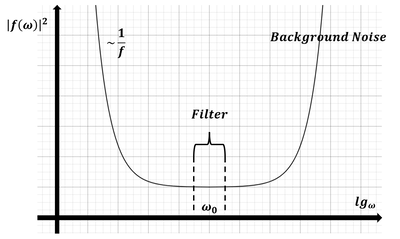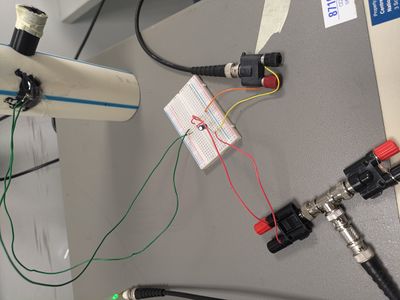Smoke detection in air: Difference between revisions
Jump to navigation
Jump to search
Huanghaitao (talk | contribs) No edit summary |
Huanghaitao (talk | contribs) No edit summary |
||
| Line 5: | Line 5: | ||
[[File:SMOKE1.png|400px|thumb|left|Lock-In Amplifier]] | [[File:SMOKE1.png|400px|thumb|left|Lock-In Amplifier]] | ||
[[File:Setup.jpeg|400px|thumb|left|Experiment Setup]] | [[File:Setup.jpeg|400px|thumb|left|Experiment Setup]] | ||
Component List<br /> | |||
MODEL SR830 DSP Lock-In Amplifier<br /> | |||
1) BWP34 Silicon PIN Photodiode<br /> | |||
2) LED()<br /> | |||
3) Resistor()<br /> | |||
Overall Setup<br /> | |||
Schematics<br /> | |||
Revision as of 07:53, 28 April 2022
Smoke detector is a device that senses smoke, typically as an indicator of fire. Commercial smoke detectors issue a signal to a fire alarm control panel as part of a fire alarm system. Household smoke detectors, also known as smoke alarms, generally issue an audible or visual alarm from the detector itself or several detectors if there are multiple devices interlinked [1].
Lock-In Amplifier
Measure small signals in a large background (huge noise).


Component List
MODEL SR830 DSP Lock-In Amplifier
1) BWP34 Silicon PIN Photodiode
2) LED()
3) Resistor()
Overall Setup
Schematics